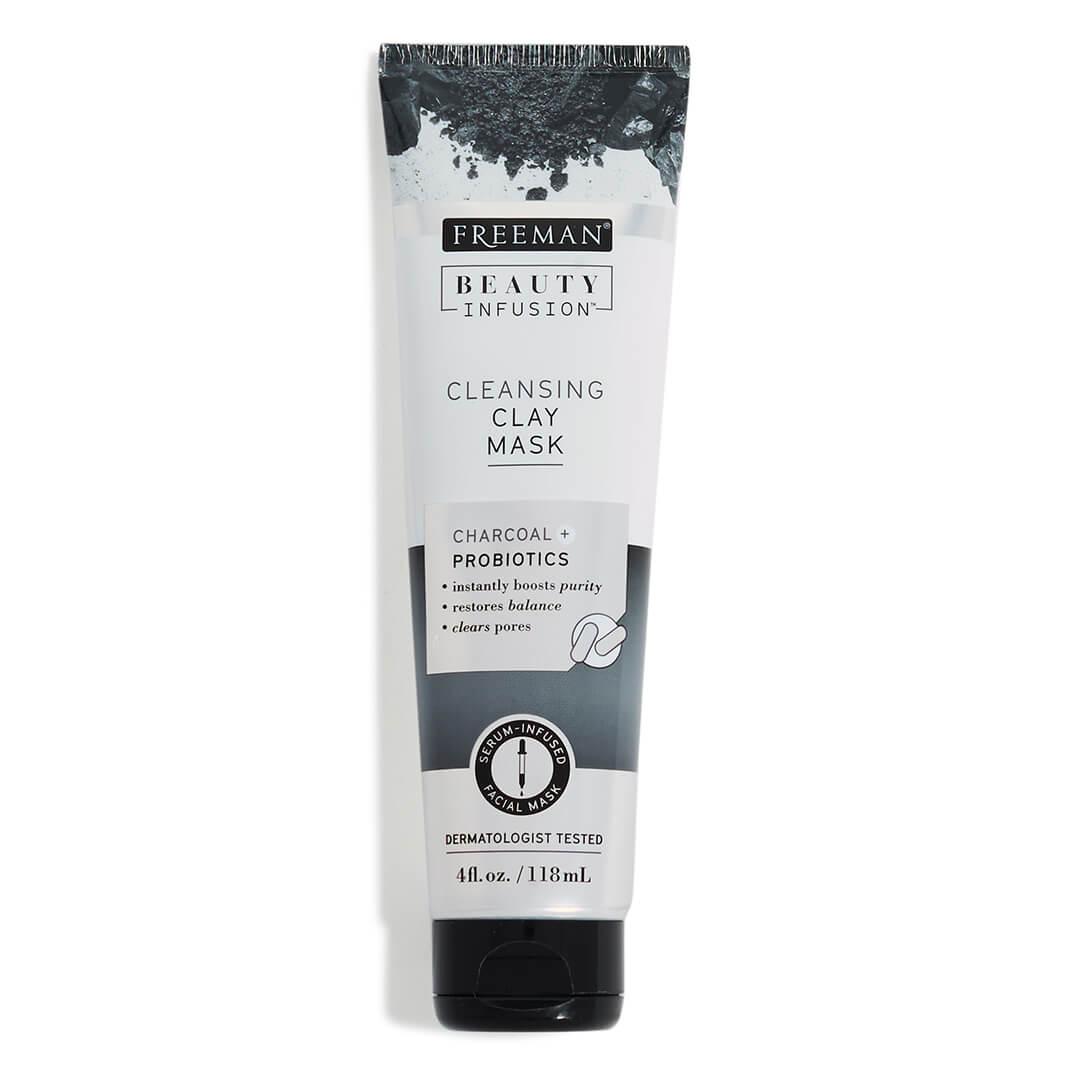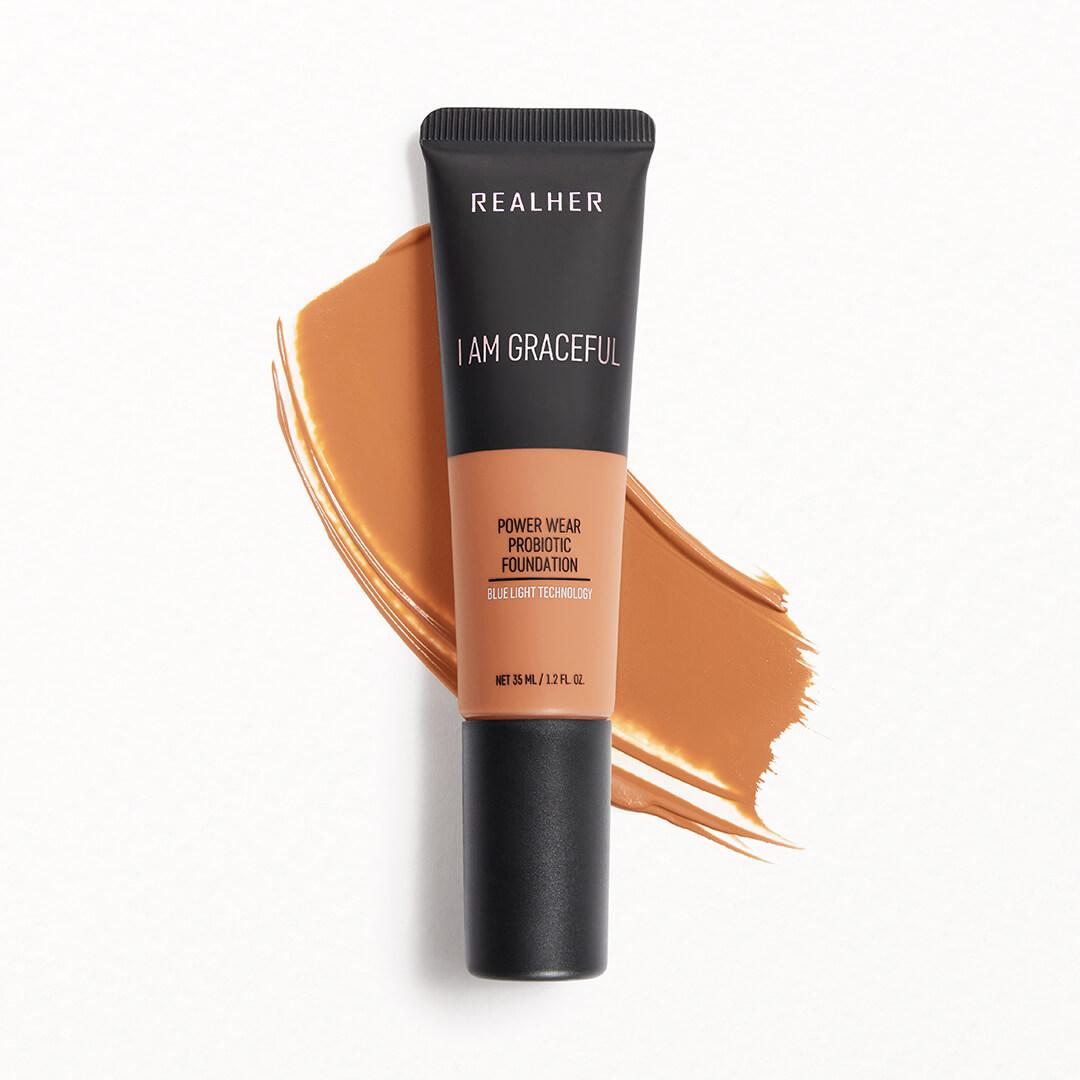How Probiotics for Acne Can Get You Clear, Calm Skin



Deanna Pai


Probiotics have entered the chat—when it comes to skincare products, at least. One big reason? The use of probiotics for acne shows a ton of promise, with early research pointing to their efficacy while still being easy on the skin barrier. But it’s not as straightforward as just adding bacteria, zapping acne, and clearing your skin forever.
Rather, the concept of using probiotics to tackle certain types of breakouts is actually rooted in the concept of the skin microbiome, which is the ecosystem of live microbes—think bacteria, yeast, and beyond—that chill on the surface of the skin, where they contribute to a healthy complexion. (On the flip side, when these microbiota are thrown out of whack, it can lead to all sorts of skin conditions, from rosacea and dermatitis to eczema and, yes, breakouts.)
A major advantage: Probiotics are a whole lot gentler than your usual acne-fighting products. We asked a derm to walk us through the effect of probiotics on acne breakouts, and how you can make them work for you for clear, healthy skin.


It's about glam time you treated yourself.
MEET THE EXPERT
Marisa Garshick, MD, is a leading board-certified dermatologist serving patients throughout Manhattan, New York, at MDCS Dermatology: Medical Dermatology & Cosmetic Surgery, as well as an assistant clinical professor of dermatology at Cornell - New York Presbyterian Medical Center.
What Even Are Probiotics?
“Probiotics are considered live microorganisms that provide health benefits—so-called good bacteria or yeast,” says Marisa Garshick, MD, a board-certified dermatologist in New York City. The good bacteria live in balance with the bad bacteria, where they keep skin inflammation in check.
You can think of it as the skin’s version of the gut microbiome. A healthy balance of gut bacteria in the digestive tract is considered essential to overall health; in fact, gut health has been linked to everything from diabetes to depression. And its influence extends from the inside-out, going so far as to impact skin in a phenomenon that’s been dubbed the gut-skin axis.
How Probiotics Can Help With Acne
The benefits of probiotics know no bounds. Keep in mind, though, that probiotics aren’t a quick fix for any and all breakouts. “While there is limited evidence, it is likely that probiotics are particularly helpful for inflammatory acne, as they can help to reduce inflammation,” says Dr. Garshick. If you’ve been dealing with good old acne vulgaris, here’s how incorporating probiotics into your skincare routine can help.
They calm inflammation: “It is thought that probiotics can help with skin health and acne by reducing inflammation,” she says. That’s because a compromised skin microbiome leads to a bump in inflammation in skin—and since inflammation is a factor in (though not the sole cause of) acne, reducing it can be a game-changer.
They restore healthy bacteria: As we mentioned, a balance between good and bad bacteria makes for healthy skin. But factors like harsh cleansers and over-exfoliation can contribute to an overgrowth of those bad bacteria, including the kind that causes acne, Propionibacterium acnes (or P. acnes). In limiting the P. acnes, probiotics set the stage for better skin.
They support a strong skin barrier: The microbiome is one layer of skin’s protective barrier, along with the lipid layer. “By helping to maintain the skin barrier, probiotics can also help with overall skin health,” says Dr. Garshick.
They fortify skin’s immune system: Research in Dermatologic Therapy found that probiotics can help modulate the skin’s immune response, which further helps to quell inflammation—which in turn helps keep those inflammatory acne lesions at bay.
They zap pimples from within: Another study in the International Journal of Women’s Dermatology found that oral probiotic supplements could also help with acne lesions, further supporting the link between skin and intestinal health.
What Are the Side Effects of Probiotics?
Good news: When you’re using probiotics for acne, you can’t really go wrong. “Further research is needed to determine the true benefits, but overall they are easy to tolerate,” says Dr. Garshick.
How to Use Probiotics for Acne
Choose your fighter: Microbiome-friendly ingredients can be applied topically, either as prebiotics (which act like fuel for bacteria), probiotics (the actual live bacteria), or postbiotics (the beneficial end-products). While the exact probiotic strains may vary, “some strains such as lactobacillus paracasei and lactobacillus rhamnosus have anti-inflammatory benefits—making them helpful for acne,” she says.
And while topical probiotics are a no-brainer for skin, you can get them via a dietary supplement, too. “Oral probiotics join the bacteria that have already been living in the gut and aim to keep the balance of good organisms and bad organisms in check,” says Dr. Garshick.
Possibly the best part? You don’t have to quit your other acne treatments. “Because probiotics are often gentle on the skin and also help to support the skin barrier, they can also be used in conjunction with other acne treatments,” says Dr. Garshick.
What Are the Best Probiotics for Acne?
1. TULA SKINCARE Go Away Acne Spot Treatment


Whatever's popped up on your skin, you're in luck: This potent spot treatment offsets 5% benzoyl peroxide—which functions as an antibacterial agent—with tea tree oil and probiotics, which minimize the telltale signs of inflammation. Redness and swelling won’t stand a chance.
2. BEAUTY INFUSION Cleansing Clay Mask Charcoal & Probiotics


Make quick work of clogged pores with this non-drying clay mask, which balances detoxifying activated charcoal with soothing probiotics. It's all the pore-clearing power of clay, but without the usual dryness of an old-school mud mask.
3. CLARITY RX Get Balanced™ Probiotic Serum


Breakouts can happen to any skin type. This thoughtful serum offers just the right amount of balance, with a strategic blend of probiotics, hyaluronic acid, and antioxidants to keep skin glowy, soft, and smooth, whatever you’re working with.
4. DR LILI FAN Probiotic Recovery Cream


Acne-prone skin needs moisture, too. With this probiotic-spiked face cream, you can slather it on to nourish skin and get a slew of heavy-hitting ingredients, such as probiotics, vitamin C (a powerful antioxidant), and even firming peptides.
5. SEOULKLEEN Probiotics Balancing Cleanser


While harsh cleansing agents can strip the skin, throwing off the balance of the microbiome, this actively nourishes with probiotics—as well as lauric acid to keep that bad bacteria in check.
6. REALHER Power Wear Probiotic Foundation


If you’re wearing makeup to conceal blemishes and create a smooth finish, consider this long-wear foundation, which is infused with probiotics for acne-soothing benefits.
See the power of probiotics for yourself with an IPSY Glam Bag! Take our Beauty Quiz now to get started. Already an Ipster? Refer your friends to earn points, which you can use toward products. Either way, don’t forget to check us out on Instagram and Twitter @IPSY.
Like this article? Share it with your friends by clicking the icons below!
Liked this post? Share!
Related Stories


Skin
How to Adjust Your Skincare Routine for Mature Skin in the Winter
Published on Dec 4, 2025 • 7 min read


Skin
Meet the Best Moisturizers for Winter, According to Dermatologists
Published on Dec 1, 2025 • 9 min read


Skin
What Is Inflammaging—and Why Everyone’s Talking About It
Published on Dec 1, 2025 • 8 min read


Skin
6 Skincare Trends to Have on Your Radar in 2026, According to Experts
Published on Dec 1, 2025 • 7 min read


Skin
We Grabbed Our Crystal Ball and Found These 6 Skincare Predictions for 2025
Published on Dec 10, 2024 • 7 min read


Skin
Simple Self-Care Tips That Actually Make a Difference
Published on Nov 13, 2025 • 12 min read


Skin
These 9 Face Scrubs Will Unlock Soft and Smooth Skin on Contact
Published on Nov 5, 2025 • 10 min read


Skin
10 Thanksgiving Foods That Will Have Your Skin Coming Back for Seconds
Published on Oct 15, 2025 • 7 min read


Beauty Picked Just for You
Get 5 products worth up to $70
Plus exclusive access to epic deals up to 80% off
Starting at just $14/month. Cancel anytime.